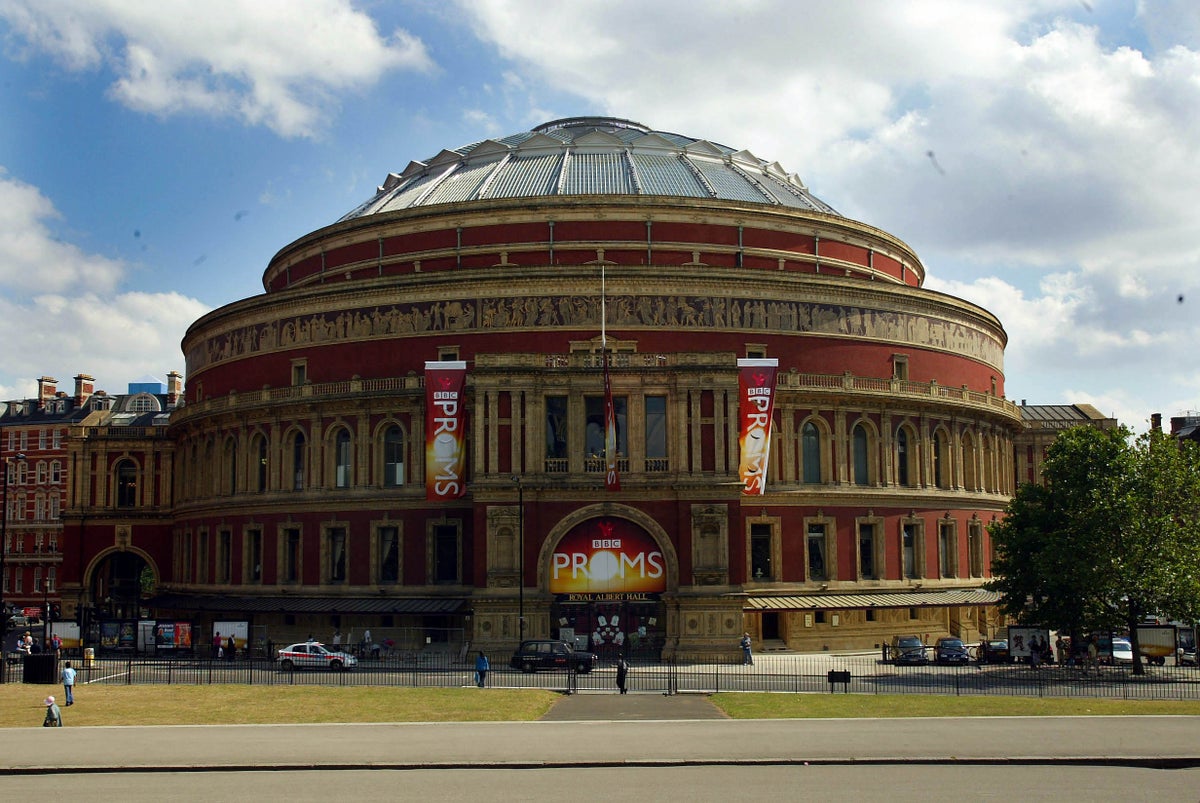
Support truly
independent journalism
The BBC has pulled an advert for a pacifist organisation that was due to appear in the programme for the Prom’s performance of Benjamin Britten’s “War Requiem”.
The choral work, which is a meditation on the cycle of war, will be performed at this year’s Proms concerts at the Royal Albert Hall.
The piece was written in the 1960s for the reconsecration of Coventry Cathedral, which was partially destroyed during the Second World War and gave voice to Britten’s strongly held pacifist beliefs.
The Peace Pledge Union (PPU), of which Britten was a member, is an organisation that has been campaigning for pacificism since 1934. It had paid for an advert to appear in the Proms programme on the night of the “War Requiem” performance.
The advert explained that Britten’s choral piece is “a profound expression of his personal renunciation of war” and told the reader that the composer was an active member of the Peace Pledge Union during his lifetime.
The text overlaid a picture of the commemoration stone to the conscientious objectors and continued: “The belief that warfare is never the answer – and that better ways of dealing with conflict can and must be found, are not just part of our political and musical history. The ideals that inspired Britten continue to inspire people today – including the thousands of current members of the Peace Pledge Union and its sister organisations around the world.”
The pacifist organisation was told last week that its advert had been pulled from the programme and it would get a refund from the publishers, who said the BBC objected to its inclusion in the Proms programme.
It is understood this was because the BBC decided the advert was of a campaigning nature.
Albert Beale from the PPU told The Independent: “I can understand where they are coming from but it is ironic and rather sad. We are promoting pacificism and I can understand the caution, but I thought we were pitching it in such a way that wouldn’t be a problem.
“The piece of music is a massively powerful statement but it is in an artistic form. The BBC are happy for that to be broadcast but they seem to not be happy with a similar sentiment written in the programme.”
He added: “I’m aware that you wouldn’t put in a party political broadcast. But we weren’t putting in a polemical advert. It was just trying to reflect the emotions and sentiment in Britten’s music and to remind people who are listening to the music that there are still people in the UK trying to live by his standards.
“It wasn’t taking a stance against any particular war. It was deliberately intended to follow the spirit of the music.”
Britten became a member of the PPU in the 1930s and composed a marching song, “Pacifist March”, for the organisation. The PPU was formed in 1934 by the Anglican priest Dick Sheppard in response to the growing threat of war in Europe and is one of the UK’s primary pacifist organisations.
Britten’s “War Requiem” uses the text of the Latin mass of the dead interspersed with the poetry of Wilfred Owen. It will be performed on Saturday 17 August at the Royal Albert Hall by the London Symphony Orchestra, three choirs and three vocal soloists, with Sir Antonio Pappano conducting.
In its summary of the performance, the BBC Proms said: “Never has this tense, angry and cautiously optimistic work seemed more relevant since its first performance 62 years ago.”
A spokesperson for the BBC said: “We consider each ad individually and apply the principles of the BBC guidelines on a case-by-case basis.”







